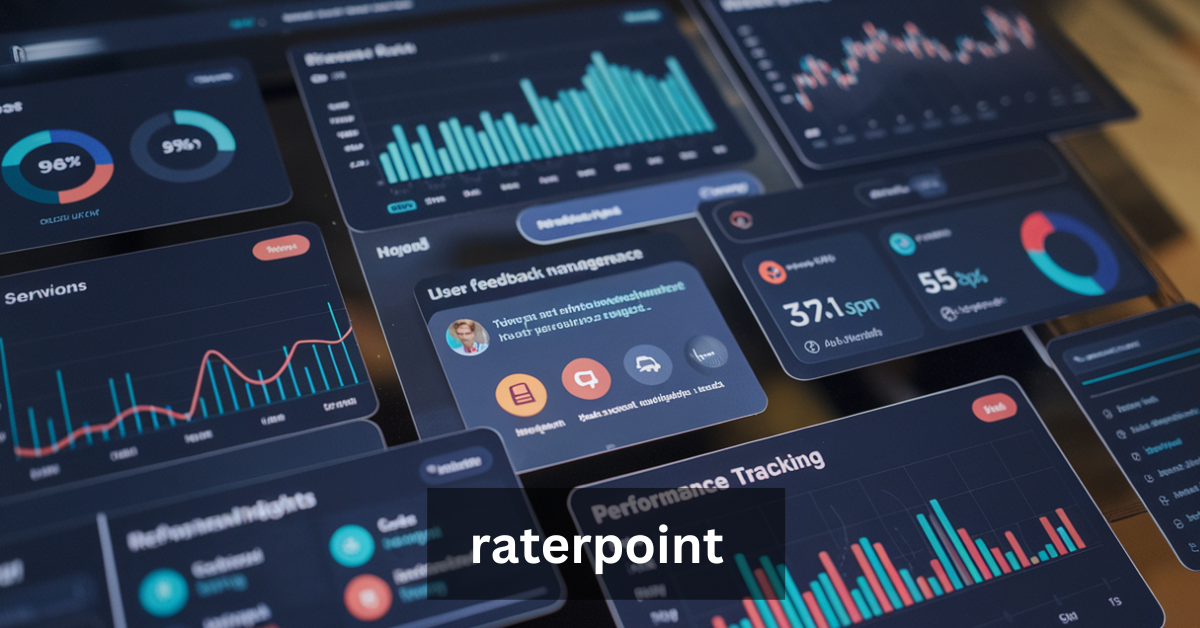RaterPoint is a tool used by search engine companies to ensure the quality and accuracy of search results. It allows human raters to evaluate search outcomes against specific guidelines, helping search engines refine their algorithms and deliver more relevant, accurate results to users.
The precision with which search results meet user needs defines the effectiveness of these platforms. Central to this refinement process is RaterPoint, a sophisticated tool that bridges human judgment and algorithmic capabilities. This article delves into the multifaceted aspects of RaterPoint, explaining its features, benefits, and the pivotal role it plays in shaping search quality.
The Evolution of Search Engine Quality Tools
Early Methods of Search Result Evaluation
In the nascent stages of the internet, search engines relied on simplistic methods such as keyword density and meta tags for ranking web pages. These basic parameters often resulted in irrelevant or low-quality search results. As the internet grew, so did the complexity of user queries, necessitating more advanced evaluation systems.
Emergence of Quality Raters and Tools Like RaterPoint
Recognizing the limitations of algorithms alone, companies like Google and Bing introduced quality raters—trained professionals tasked with manually assessing search results based on defined criteria. Tools like RaterPoint were subsequently developed to streamline this process, ensuring consistency, accuracy, and efficiency in quality assessments.
What is RaterPoint?
Definition and Core Functions
RaterPoint is a proprietary platform designed for search engine quality assurance. It serves as the central hub for quality raters, offering a structured interface for evaluating search results. By gathering human insights, RaterPoint enhances algorithmic precision, ensuring search engines provide results that align with user intent and expectations.
Bridging Human Expertise and Machine Intelligence
Search engines rely on algorithms to analyze vast amounts of data, but these systems cannot fully understand the nuances of human behavior and intent. RaterPoint addresses this gap by leveraging the expertise of human raters, enabling a seamless integration of human insights and machine learning.
Key Features of RaterPoint
Task Management and Workflow Organization
One of RaterPoint’s standout features is its ability to efficiently organize tasks for quality raters. Tasks are assigned based on factors such as the rater’s expertise or regional knowledge, ensuring evaluations are both relevant and insightful.
Integration of Quality Rater Guidelines
RaterPoint incorporates the Google Search Quality Rater Guidelines directly into its interface, allowing raters to reference these standards while performing evaluations. This integration ensures consistency across thousands of assessments.
Training Modules for Raters
To maintain high standards, RaterPoint offers comprehensive training programs. These modules are designed to familiarize raters with evaluation techniques, ensuring they understand key concepts like Expertise, Authoritativeness, and Trustworthiness (E-A-T).
Global Scalability
RaterPoint is designed to accommodate a vast number of raters simultaneously, making it scalable for global use. This scalability allows search engines to gather diverse insights from various regions and cultural contexts.
How RaterPoint Works
Task Allocation and Completion Process
RaterPoint streamlines the allocation of evaluation tasks. Each task includes detailed instructions and guidelines, ensuring raters can efficiently assess search results for relevance, accuracy, and overall quality.
Feedback and Data Aggregation
The platform collects and aggregates feedback from raters, converting qualitative insights into actionable data. This data is then used by search engine developers to refine their algorithms and improve the quality of search results.
Importance of RaterPoint for SEO
Enhancing Relevance and User Intent Matching
By analyzing the feedback provided through RaterPoint, search engines can fine-tune their algorithms to better understand and predict user intent. This ensures that search results are both relevant and accurate, boosting the overall search engine optimization (SEO) strategy.
Improving User Experience
Search engines are evaluated not just on the relevance of their results but also on the quality of the user experience they provide. RaterPoint plays a crucial role in ensuring search results are user-friendly and meet high-quality standards.
Promoting Ethical Practices in Search
RaterPoint adheres to ethical guidelines, ensuring unbiased evaluations. By promoting transparency and fairness, it helps search engines maintain credibility and trustworthiness.
Benefits of Using RaterPoint
Improved Accuracy in Search Algorithms
The structured feedback provided through RaterPoint allows search engines to identify and address flaws in their algorithms, leading to more accurate and reliable search results.
Faster Iterative Improvements
With its scalable infrastructure, RaterPoint enables search engines to gather feedback at an unprecedented speed. This accelerates the cycle of algorithm refinement, ensuring search engines remain up-to-date with changing user needs.
Global Adaptability
By incorporating feedback from raters across different regions, RaterPoint ensures search engines cater to a diverse audience. This adaptability is essential for meeting the needs of global users with varying cultural and linguistic preferences.
Challenges and Limitations of RaterPoint
Human Bias in Evaluations
Despite rigorous training, human raters may introduce biases into their evaluations. These biases can stem from personal preferences or misinterpretations of guidelines. RaterPoint mitigates this challenge through standardized protocols and continuous training.
Confidentiality vs. Transparency
As a proprietary tool, RaterPoint operates under strict confidentiality. While this protects competitive advantages, it also raises concerns about transparency in how search results are evaluated and ranked.
Adapting to Technological Advances
As AI and machine learning technologies continue to evolve, RaterPoint must adapt to remain relevant. Integrating advanced AI-driven features without undermining the value of human judgment will be a critical challenge.
Future of RaterPoint
Integration with AI and Machine Learning
The future of RaterPoint lies in its ability to incorporate AI-driven features, such as automated error detection and evaluation suggestions. This integration will enhance the efficiency and accuracy of the platform.
Expanding to Emerging Markets
As internet usage grows in developing regions, RaterPoint will need to adapt its guidelines and processes to address the unique needs of these markets.
Enhancing Transparency and Ethical Standards
To address concerns about fairness and accountability, RaterPoint could introduce more transparent reporting systems, ensuring stakeholders understand how evaluations impact search results.
Practical Tips for Leveraging RaterPoint Insights
Aligning Content Strategies with Guidelines
Content creators can optimize their strategies by aligning with the Google Search Quality Rater Guidelines, which emphasize E-A-T principles. This alignment ensures higher rankings and better visibility.
Optimizing for User Intent
Understanding user intent is crucial for creating content that resonates with audiences. RaterPoint insights can help businesses anticipate trends and align their offerings with user expectations.
Adapting to Search Behavior Trends
By analyzing feedback from RaterPoint, businesses can stay ahead of evolving search behaviors, ensuring their content remains relevant and engaging.
Conclusion
RaterPoint represents a transformative step in the world of search engine quality assurance. By combining human expertise with algorithmic innovation, it ensures search engines deliver results that are relevant, accurate, and aligned with user intent. As the digital landscape continues to evolve, tools like RaterPoint will remain critical in shaping a trustworthy and efficient search experience for users worldwide. The future of search quality lies in this powerful synergy of human judgment and technological precision.
Frequently Asked Questions
How does RaterPoint improve search engine results?
RaterPoint enhances search engine results by providing feedback on relevance, accuracy, and quality from human raters. These raters assess search results based on factors like user intent, content relevance, and the authority of sources, helping search engines improve their ranking algorithms.
Who uses RaterPoint?
RaterPoint is primarily used by search engine companies like Google and Bing. Contractors, often referred to as quality raters, use the tool to evaluate search results based on detailed guidelines provided by the search engines.
What are the main features of RaterPoint?
Key features of RaterPoint include task management for organizing evaluations, integration with quality rater guidelines, training modules for raters, and scalability to handle a large number of evaluations globally. These features ensure efficient and consistent evaluation processes.
Can RaterPoint help with SEO?
Yes, RaterPoint can assist with SEO by helping search engines improve their understanding of user intent and the relevance of search results. By optimizing algorithms based on feedback from raters, search engines can provide higher-quality search results, benefiting businesses looking to optimize their content for better rankings.
Stay in touch to get more updates & alerts on TGTube! Thank you



